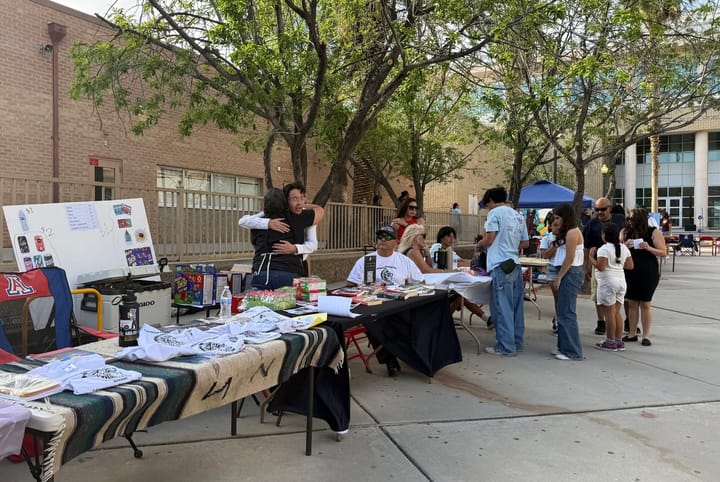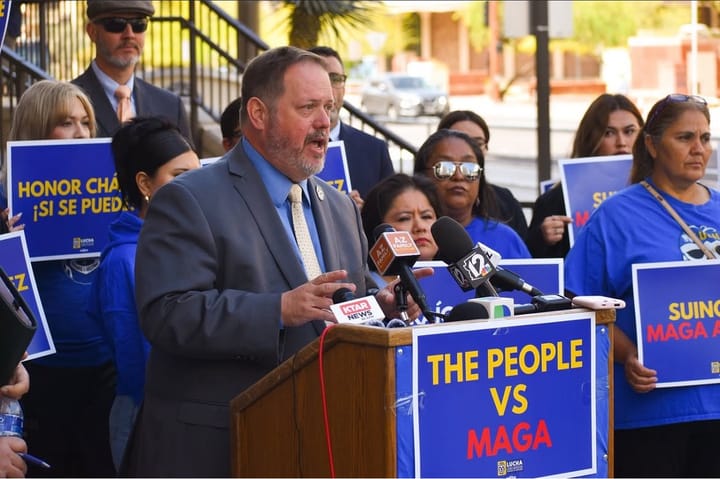Agave takes root in culture, sustainability and tradition
The agave plant has deep cultural roots in Tucson and plays a important role in sustainable living through Indigenous traditions and education.
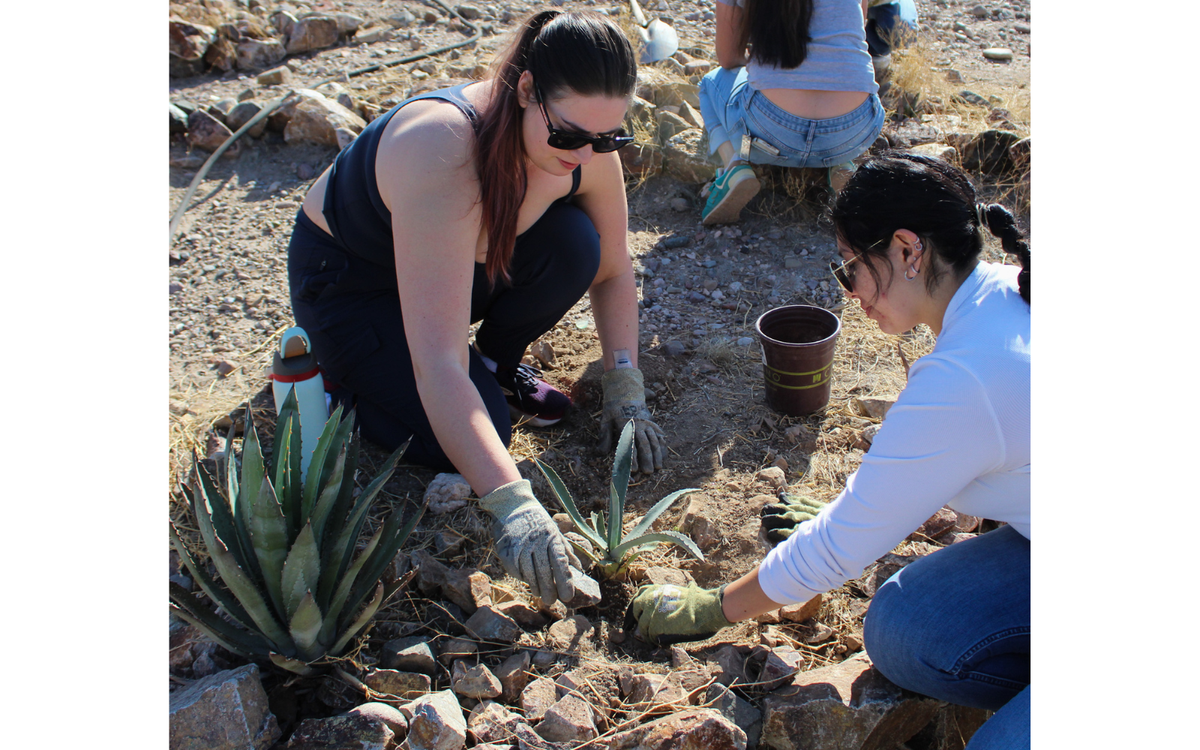
Long before it gained popularity as the base of trendy spirits and cocktails, agave was the lifeblood of desert survival — a sacred plant cultivated for food, fiber and ceremony.
The Agave Heritage Festival kicked off its four-day celebration today, honoring the deep cultural roots and sustainable future of this resilient desert plant.
The festival started in 2008 as a bartender showcase in downtown Tucson called “Tequila Fest.” But Agave Heritage Festival founder and director Todd Hanley soon became bored by the simplicity of the event.
Hanley was fascinated by the agave's unique photosynthetic capabilities — its ability to store moisture from the evening throughout the day and its tolerance to drought. So, with the help of ethnobotanist Gary Nabham, Hanley evolved the festival from an event solely focused on consumption to an educational, conservation and cultural showcase.
“We’re heading down a very important path around the true action orientated aspect of the festival when it comes to the conservation of agave from an agricultural and cultural perspective,” Hanley said.

The strong focus on sustainability is meant to help the consumer understand the differences between mass-produced commercial products and artisanal ones.
“Your behavior as an individual is critical to the bigger picture of our society, you know our earth,” Hanley said.
While a brand can claim to be sustainable and eco-friendly, it can also be greenwashed, he explained. Greenwashing is a deceptive marketing tactic in which a company falsely portrays its products, services or operations as more environmentally friendly or sustainable than they actually are.
To combat that narrative, the festival invites representatives from truly sustainable brands to tell their stories and interact with attendees.
“The consumer does have the leverage, the power to help shape the future of how we exist within our society as individuals, it’s just as simple as behavior change,” Hanley said. “Behavior and knowledge are so important.”
Agave has been in the Tucson Basin for more than 4,000 years — as long as the Indigenous peoples of the region. The plant was cultivated as a source of food and fiber, with evidence of agave roasting pits on Tumamoc Hill, the birthplace of Tucson.
In 2017, Mission Garden began hosting an annual agave roasting event for the festival to demonstrate how agave was — and still is — used as a source of food.
“Mission Gardens is, for me, the best representation of Southern Arizona in terms of how they represent the historical ethnobotanical aspects of agriculture,” Hanley said.
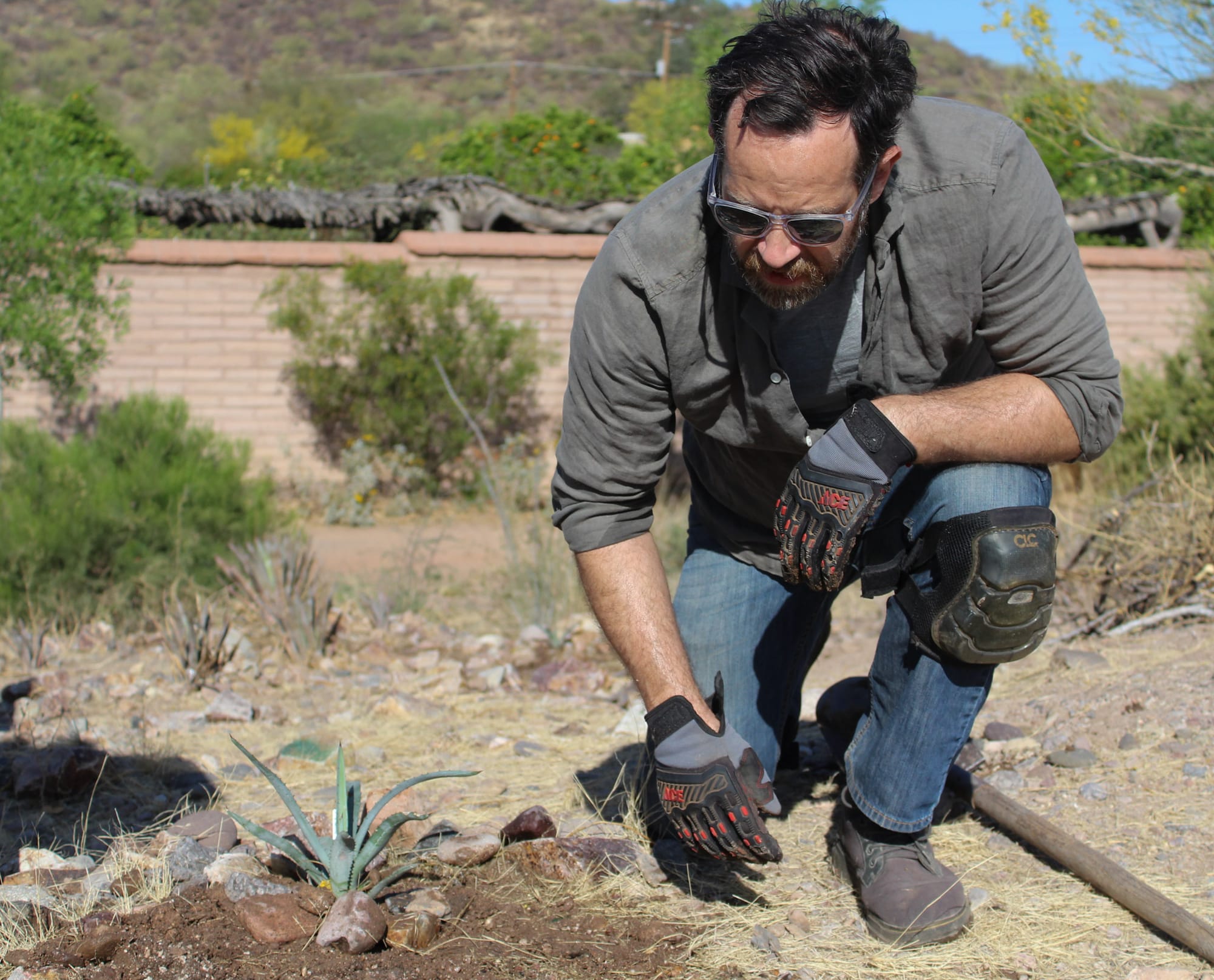
Since authenticity is a key feature of the garden, staff built a Sonoran-style roasting pit lined with rocks on the outside.
The Sonoran-style method of roasting agave starts with burning mesquite wood until it becomes hot coals, according to Abby Rhinehart, the garden’s education coordinator. Then, the piña — the heart of the agave — is placed in the pit and covered with rocks, agave leaves and a large piece of metal. After 24 to 48 hours, depending on the method, she said, the sugars in the agave are brought out, roasted and caramelized.
Mission Garden invites Indigenous groups each year to demonstrate their roasting traditions, with the Kumeyaay tribe from San Diego joining this year.
With more than 240 types of agave — many native to the Tucson Basin — different tribes have their own methods of roasting. The Kumeyaay tribe will host two events to educate attendees on their techniques.
“(Agave) has deep roots here in being food for people in the Sonoran Desert and beyond,” Rhinehart said. “There is an importance there in reviving those food ways and those ways of relating to the land for everyone, but especially to support Indigenous people in reclaiming that relationship that they have with the food.”
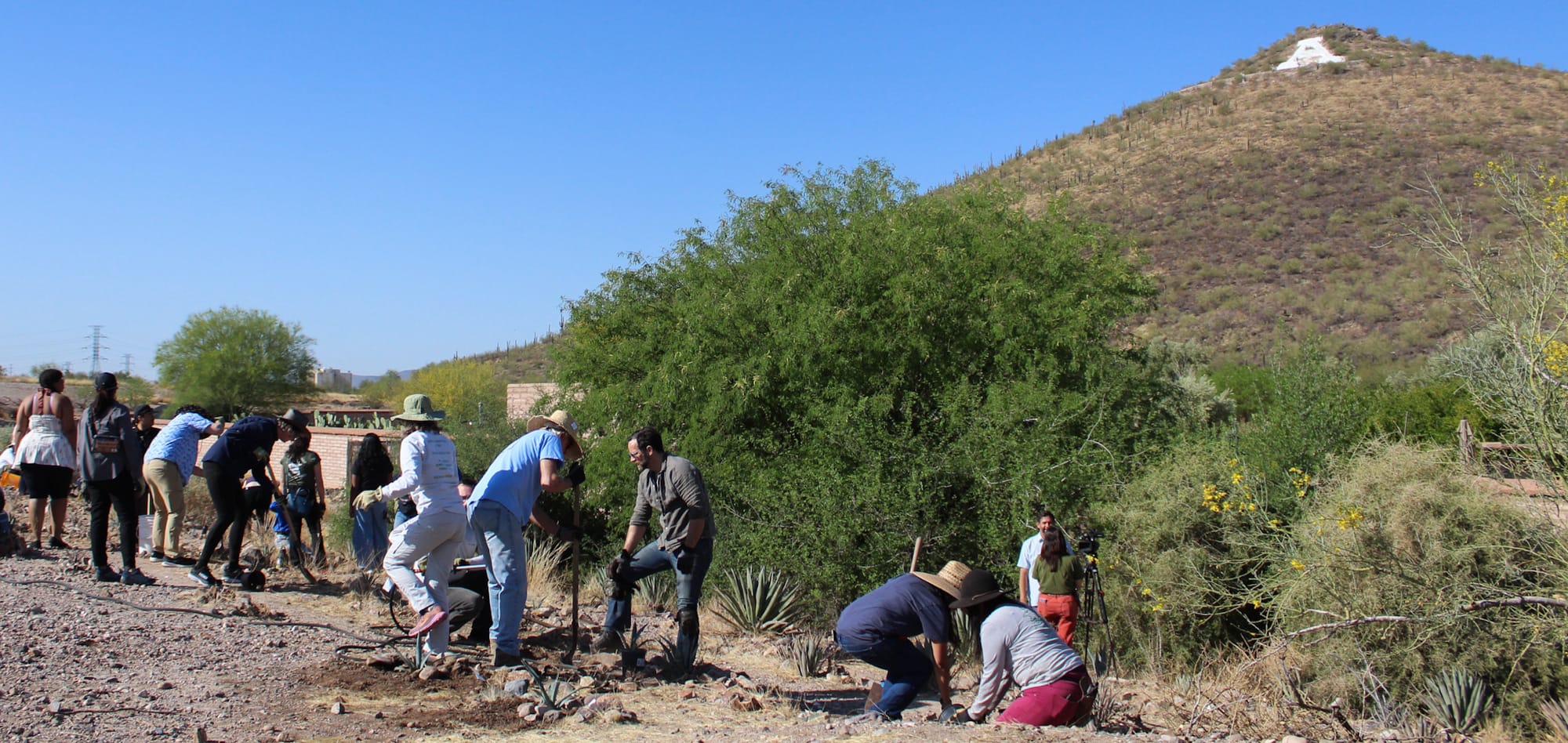
Mission Garden is hosting four events for the festival, starting with this morning’s agave planting. Inspired by Indigenous planting traditions on Tumamoc Hill, the event contributes to Mission Garden’s new Tomorrow’s Garden — a demonstration space for foods that can be grown sustainably in the Sonoran Desert.
This evening, the agave roast pit uncovering will take place at 5:30 p.m. Dr. Stanley Rodriguez, a member of the Kumeyaay Santa Ysabel Band of the Iipay Nation, will lead members of the tribe in demonstrating their roasting methods.
Rodriguez will also present Friday at Mission Garden from 10:30 to 11:30 a.m. on the Kumeyaay practice of agave roasting.
The final festival event hosted at Mission Garden is the Lifetime Career Award Lecture by Paul and Suzy Fish, two distinguished friends of the garden who helped plant its agave. The lecture will be held Saturday, April 12, at 10 a.m.
For festival founder Hanley, Mission Garden represents the heart of the region’s Indigenous traditions — traditions that have been vital to its growth — and its ongoing commitment to sustainability perfectly reflects the festival’s mission.
“We’re proud to be a part of the Agave Heritage Festival,” said Mission Garden Executive Director Alyce Sadongei.
When: Thursday, April 10 through Sunday, April 13
Where: Multiple locations
Cost: Varies. Some events are free. See festival website for details.
Gracie Kayko is a University of Arizona alum and freelance journalist.
Tucson Spotlight is a community-based newsroom that provides paid opportunities for students and rising journalists in Southern Arizona. Please support our work with a paid subscription.


